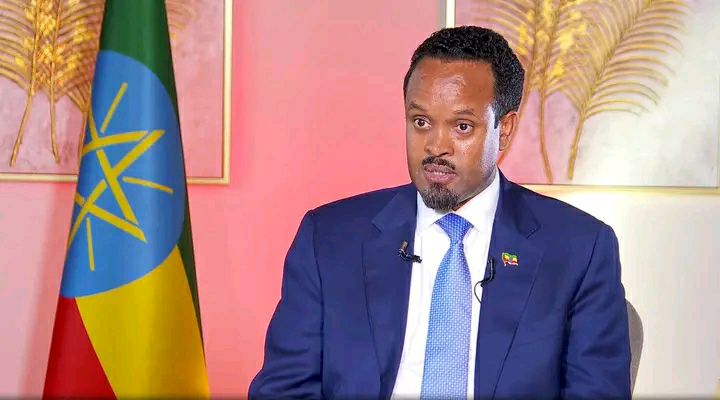Ministry of Finance Reports Strong Progress in Project Quality, Economic Reform Implementation - ENA English
Ministry of Finance Reports Strong Progress in Project Quality, Economic Reform Implementation

Addis Ababa, June 9, 2025 (ENA)—Ministry of Finance has reported substantial progress in the quality and speed of public project implementation, emphasizing the positive outcomes of the government’s recent macroeconomic reforms.
During a briefing on the status of the reforms and key economic developments, Ahmed Shide, Minister of Finance, noted that both the pace and quality of government-led projects have accelerated in the past seven years.
As a clear example, he cited the construction of over 22,000 kilometers of roads currently underway, underscoring the government's strong commitment to infrastructure development.
He also noted improvements in irrigation development, with several projects nearing completion and delivering promising results, likewise, tourism destination developments are being executed on schedule and to a high standard, with many sites already operational.
The Minister has credited the leadership of Prime Minister Abiy Ahmed for the effective execution of these initiatives.
In the social sector, Ahmed described the performance of education and health projects as excellent, with many initiatives showing tangible benefits and meeting public service delivery goals.
“The past seven years have seen a marked improvement in the speed and quality of project implementation across multiple sectors,” he stated. “This reflects the broader success of our economic reform program.”
On the macroeconomic front, the minister reported that the transition to a market-based foreign exchange rate system has significantly reduced policy-related pressures.
A sharp decline in smuggling, particularly in the gold trade, where domestic transactions have now been legalized, he emphasized, adding, as a result, gold exports have risen, and the shift of mineral products into the formal market has been successful.
According to the minister, Ethiopia’s regional integration efforts has also been progressing, pinpointing the advances in infrastructure and energy supply connections with neighboring countries, which are expected to continue strengthening as part of Ethiopia’s regional cooperation strategy.
Turning to fiscal matters, the minister outlined the government's draft budget for the 2018 Ethiopian fiscal year, noting it was developed based on macroeconomic forecasts, projected revenue capacity, and the country’s expenditure needs.
“This budget is vital for sustaining ongoing development projects, maintaining essential social subsidies, and ensuring macroeconomic stability,” he emphasized. “We are committed to not borrowing directly from the National Bank in the coming fiscal year, reinforcing our dedication to responsible economic management.”
The budget, he explained, aligns with the Comprehensive Macroeconomic Fiscal Framework, which is designed to support broad development goals while ensuring continuity in public services and infrastructure expansion.
The minister concluded by affirming that the macroeconomic reform agenda is delivering strong results across all key performance indicators, contributing to robust economic growth and improved public service outcomes.